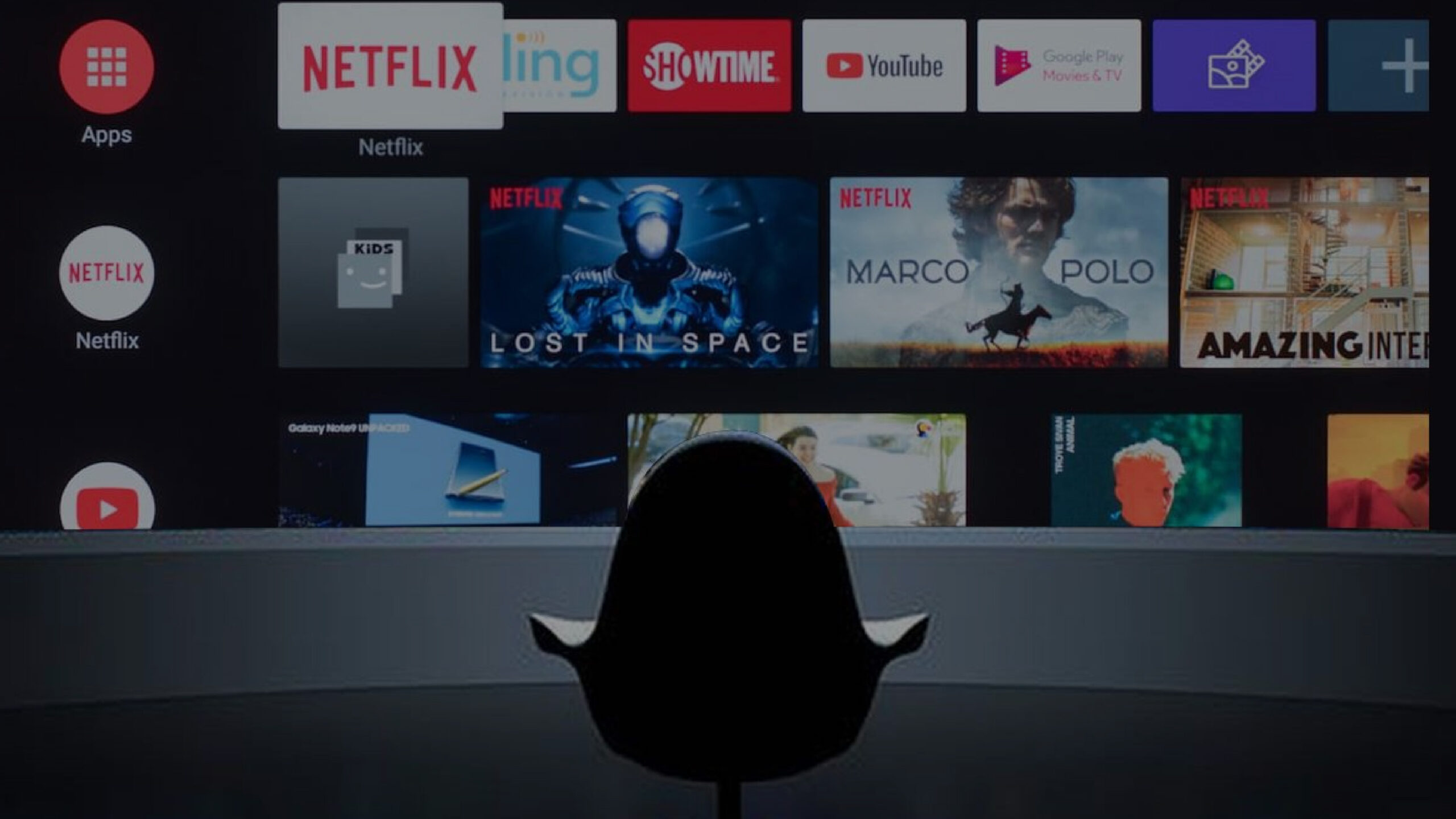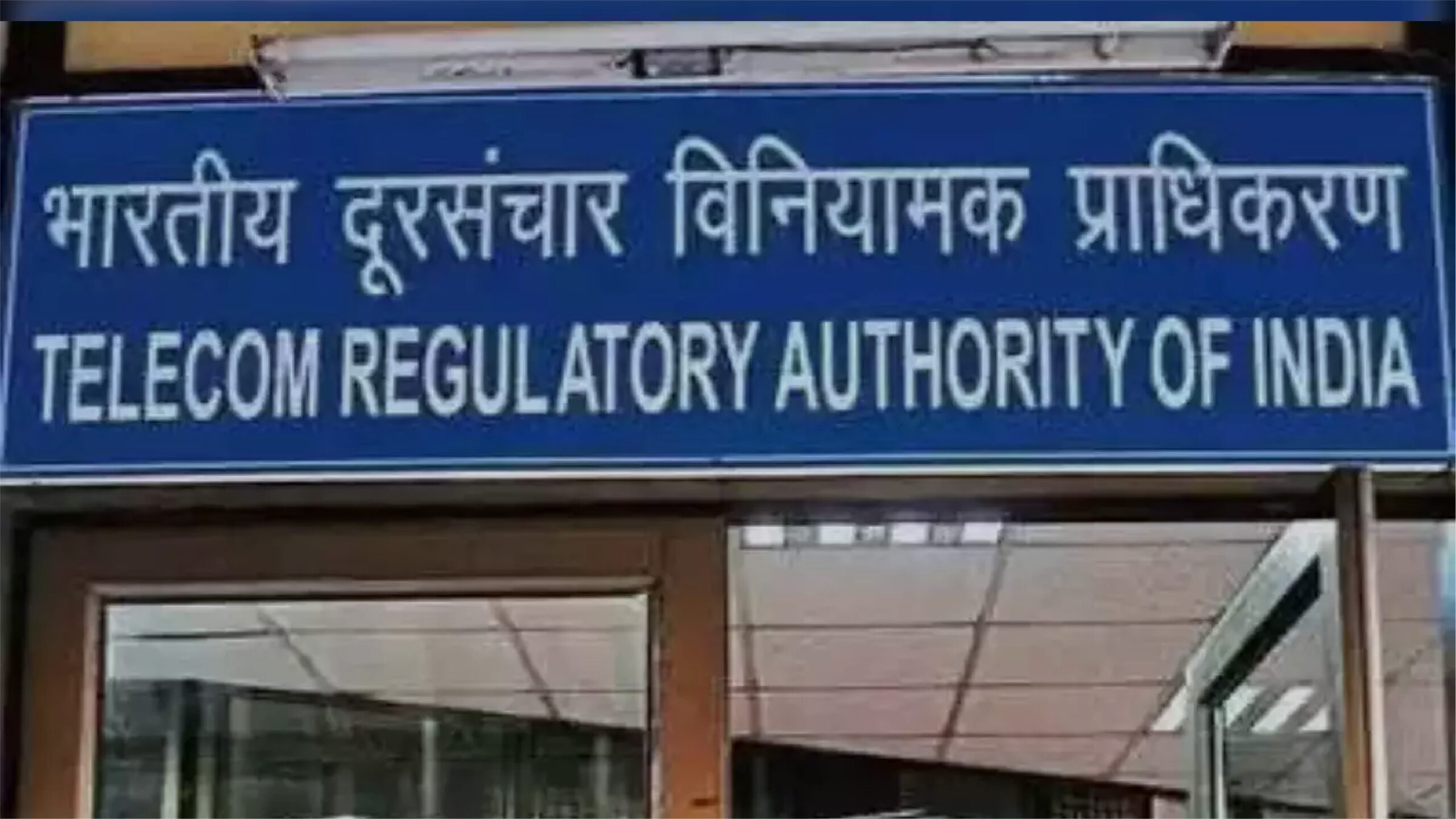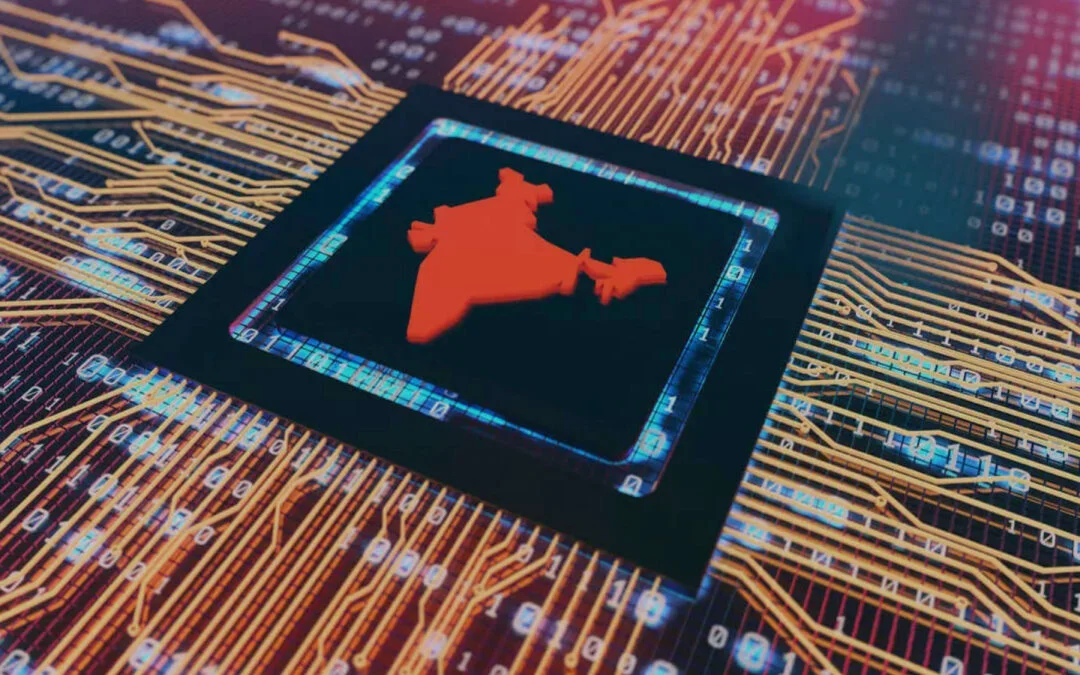Tech Regulations

Introduction
Google Play has announced its new policy which will ensure trust and transparency on google play by providing a new framework for developer verification and app details. The new policy requires that new developer accounts on Google Play will have to provide a D-U-N-S number to verify the business. So when an organisation will create a new Play Console developer account the organisation will need to provide a D-U-N-S number. Which is a nine-digit unique identifier which will be used to verify their business. The new google play policy aims to enhance user trust. And the developer will provide detailed developer details on the app’s listing page. Users will get to know who is behind the app which they are installing.
Verifying Developer Identity with D-U-N-S Numbers
To boost security the google play new policy requires the developer account to provide the D-U-N-S number when creating a new Play Console developer account. The D-U-N-S number assigned by Dun & Bradstreet will be used to verify the business. Once the developer creates his new Play Console developer account by providing a D-U-N-S number, Google Play will verify the developer’s details, and he will be able to start publishing the apps. Through this step, Google Play aims to validate the business information in a more authentic way.
If your organisation does not have a D-U-N-S number, you may check on or request for it for free on this website (https://www.dnb.com/duns-number/lookup.html). The request process for D-U-N-S can take up to 30 days. Developers are also required to keep the information up to date.
Building User Trust with Enhanced App Details
In addition to verifying developer identities in a more efficient way, google play also requires that developer provides sufficient app details to the users. There will be an “App Support” section on the app’s store listing page, where the developer will display the app’s support email address and even can include their website and phone number for support.
The new section “About the developer” will also be introduced to provide users with verified identity information, including the developer’s name, address, and contact details. Which will make the users more informed about the valuable information of the app developers.
Key highlights of the Google Play Polic
- Google Play came up with the policy to keep the platform safe by verifying the developers’ identity and it will also help to reduce the spread of malware apps and help the users to make confident informed decisions about the apps they download. Google Play announced the policy by expanding its developer verification requirement to strengthen Google Play as a platform and build user trust. When you create a new Play Console Developer account and choose organisation as your account type you will now need to provide a D-U-N-S number.
- Users will get detailed information about the developers’ identities and contact information, building more transparency and encouraging responsible app development practices.
- This policy will enable the users to make informed choices about the apps they download.
- The new “App support” section will provide enhanced communication between users and developers by displaying support email addresses, website and support phone numbers, streamlining the support process and user satisfaction.
Timeline and Implementation
The new policy requirements for D-U-N-S numbers will start rolling out on 31 August 2023 for all new Play Console developer accounts. The “About the developer” section will be visible to users as soon as a new app is published. and In October 2023, existing developers will also be required to update and verify their existing accounts to comply with the new verification policy.
Conclusion
Google Play’s new policy will aim to enhance the more transparent app ecosystem. This new policy will provide the users with more information about the developers. Google Play aims to establish a platform where users can confidently discover and download apps. This new policy will enhance the user experience on google play in terms of a reliable and trustworthy platform.

Introduction
Recently, a Consultation Paper on Regulatory Mechanisms for Over-The-Top (OTT) Communication Services was published by the Telecom Regulatory Authority of India (TRAI). The paper explores several OTT regulation-related challenges and solicits input from stakeholders on a suggested regulatory framework. We’ll summarise the paper’s main conclusions in this blog.
Structure of the Paper
The Telecom Regulatory Authority of India’s Consultation Paper on Regulatory Mechanism for Over-The-Top (OTT) Communication Services and Selective Banning of OTT Services intends to solicit comments and recommendations from stakeholders about the regulation of OTT services in India. The paper is broken up into five chapters that cover the introduction and background, issues with regulatory mechanisms for OTT communication services, issues with the selective banning of OTT services, a summary of the issues for consultation, and an overview of international practices on the topic. Written comments from interested parties are requested and may be sent electronically to the Advisor (Networks, Spectrum and Licencing) at TRAI. These comments will also be posted on the TRAI website.
Overview of the Paper
- Chapter 1: Introduction and Background
- The first chapter of the essay introduces the subject of OTT communication services and argues why regulatory frameworks are necessary. The chapter also gives a general outline of the topics and the paper’s organisation that will be covered in the following chapters.
- Chapter 2: Examination of the Issues Related to Regulatory Mechanism for Over-The-Top Communication Services
- The second chapter of the essay looks at the problems with OTT communication service regulation. It talks about the many kinds of OTT services and how they affect the conventional telecom sector. The chapter also looks at the regulatory issues raised by OTT services and the various strategies used by various nations to address them.
- Chapter 3: Examination of the Issues Related to Selective Banning of OTT Services
- The final chapter of the essay looks at the problems of selectively outlawing OTT services. It analyses the justifications for government restrictions on OTT services as well as the possible effects of such restrictions on consumers and the telecom sector. The chapter also looks at the legal and regulatory structures that determine how OTT services are prohibited in various nations.
- Chapter 4: International Practices
- An overview of global OTT communication service best practices is given in the paper’s fourth chapter. It talks about the various regulatory strategies used by nations throughout the world and how they affect consumers and the telecom sector. The chapter also looks at the difficulties regulators encounter when trying to create efficient regulatory frameworks for OTT services.
- Chapter 5: Issues for Consultation
- This chapter is the spirit of the consultation paper as it covers the points and questions for consultation. This chapter has been classified into two sub-sections – Issues Related to Regulatory Mechanisms for OTT Communication Services and Issues Related to the Selective Banning of OTT Services. The inputs will be entirely focused on these sub headers, and the scope, extent, and ambit of the consultation paper rests on these questions and necessary inputs.
Conclusion
An important publication that aims to address the regulatory issues raised by OTT services is the Consultation Paper on Regulatory Mechanisms for Over-The-Top Communication Services. The paper offers a thorough analysis of the problems with OTT service regulation and requests input from stakeholders on the suggested regulatory structure. In order to make sure that the regulatory framework is efficient and advantageous for everyone, it is crucial for all stakeholders to offer their opinion on the document.

Introduction
Twitter Inc.’s appeal against barring orders for specific accounts issued by the Ministry of Electronics and Information Technology was denied by a single judge on the Karnataka High Court. Twitter Inc. was also given an Rs. 50 lakh fine by Justice Krishna Dixit, who claimed the social media corporation had approached the court defying government directives.
As a foreign corporation, Twitter’s locus standi had been called into doubt by the government, which said they were ineligible to apply Articles 19 and 21 to their situation. Additionally, the government claimed that because Twitter was only designed to serve as an intermediary, there was no “jural relationship” between Twitter and its users.
The Issue
In accordance with Section 69A of the Information Technology Act, the Ministry issued the directives. Nevertheless, Twitter had argued in its appeal that the orders “fall foul of Section 69A both substantially and procedurally.” Twitter argued that in accordance with 69A, account holders were to be notified before having their tweets and accounts deleted. However, the Ministry failed to provide these account holders with any notices.
On June 4, 2022, and again on June 6, 2022, the government sent letters to Twitter’s compliance officer requesting that they come before them and provide an explanation for why the Blocking Orders were not followed and why no action should be taken against them.
Twitter replied on June 9 that the content against which it had not followed the blocking orders does not seem to be a violation of Section 69A. On June 27, 2022, the Government issued another notice stating Twitter was violating its directions. On June 29, Twitter replied, asking the Government to reconsider the direction on the basis of the doctrine of proportionality. On June 30, 2022, the Government withdrew blocking orders on ten account-level URLs but gave an additional list of 27 URLs to be blocked. On July 10, more accounts were blocked. Compiling the orders “under protest,” Twitter approached the HC with the petition challenging the orders.
Legality
Additionally, the government claimed that because Twitter was only designed to serve as an intermediary, there was no “jural relationship” between Twitter and its users.
Government attorney Additional Solicitor General R Sankaranarayanan argued that tweets mentioning “Indian Occupied Kashmir” and the survival of LTTE commander Velupillai Prabhakaran were serious enough to undermine the integrity of the nation.
Twitter, on the other hand, claimed that its users have pushed for these rights. Additionally, Twitter maintained that under Article 14 of the Constitution, even as a foreign company, they were entitled to certain rights, such as the right to equality. They also argued that the reason for the account blocking in each case was not stated and that Section 69a’s provision for blocking a URL should only apply to the offending URL rather than the entire account because blocking the entire account would prevent the creation of information while blocking the offending tweet only applied to already-created information.
Conclusion
The evolution of cyberspace has been substantiated by big tech companies like Facebook, Google, Twitter, Amazon and many more. These companies have been instrumental in leading the spectrum of emerging technologies and creating a blanket of ease and accessibility for users. Compliance with laws and policies is of utmost priority for the government, and the new bills and policies are empowering the Indian cyberspace. Non Compliance will be taken very seriously, and the same is legalised under the Intermediary Guidelines 2021 and 2022 by Meity. Referring to Section 79 of the Information Technology Act, which pertains to an exemption from liability of intermediary in some instances, it was said, “Intermediary is bound to obey the orders which the designate authority/agency which the government fixes from time to time.”

Introduction
Cert-In (Indian Computer Emergency Response Team) has recently issued the “Guidelines on Information Security Practices” for Government Entities for Safe & Trusted Internet. The guideline has come at a critical time when the Draft Digital India Bill is about to be released, which is aimed at revamping the legal aspects of Indian cyberspace. These guidelines lay down the policy framework and the requirements for critical infrastructure for all government organisations and institutions to improve the overall cyber security of the nation.
What is Cert-In?
A Computer Emergency Response Team (CERT) is a group of information security experts responsible for the protection against, detection of and response to an organisation’s cybersecurity incidents. A CERT may focus on resolving data breaches and denial-of-service attacks and providing alerts and incident handling guidelines. CERTs also conduct ongoing public awareness campaigns and engage in research aimed at improving security systems. The Ministry of Electronics and Information Technology (MeitY) oversees CERT-In. It regularly releases alerts to help individuals and companies safeguard their data, information, and ICT (Information and Communications Technology) infrastructure.
Indian Computer Emergency Response Team (CERT-In) has been established and appointed as national agency in respect of cyber incidents and cyber security incidents in terms of the provisions of section 70B of Information Technology (IT) Act, 2000.
CERT-In requests information from service providers, intermediaries, data centres, and body corporates to coordinate reaction actions and emergency procedures regarding cyber security incidents. It is a focal point for incident reporting and offers round-the-clock security services. It manages cyber occurrences that are tracked and reported while continuously analysing cyber risks. It strengthens the security barriers for the Indian Internet domain.
Background
India is fast becoming one of the world’s largest connected nations – with over 80 Crore Indians (Digital Nagriks) presently connected and using the Internet and cyberspace – and with this number is expected to touch 120 Crores in the coming few years. The Digital Nagriks of the country are using the Internet for business, education, finance and various applications and services including Digital Government services. Internet provides growth and innovation and at the same time it has seen rise in cybercrimes, user harm and other challenges to online safety. The policies of the Government are aimed at ensuring an Open, Safe & Trusted and Accountable Internet for its users. Government is fully cognizant and aware of the growing cyber security threats and attacks.
It is the Government of India’s objective to ensure that Digital Nagriks experience a Safe & Trusted Internet. Along with ubiquitous applications of Information & Communication Technologies (ICT) in almost all facets of service delivery and operations, continuously evolving cyber threats have become a concern for the Government. Cyber-attacks can come in the form of malware, ransomware, phishing, data breach etc., that adversely affect an organisation’s information and systems. Cyber threats leading to cyber-attacks or incidents can compromise the confidentiality, integrity, and availability of an organisation’s information and systems and can have far reaching impact on essential services and national interests. To protect against cyber threats, it is important for government entities to implement strong cybersecurity measures and follow best practices. As ICT infrastructure of the Government entities is one of the preferred targets of the malicious actors, responsibility of implementing good cyber security practices for protecting computers, servers, applications, electronic systems, networks, and data from digital attacks, also remain with the ICT assets’ owner i.e. Government entity.
What are the new Guidelines about?
The Government of India (distribution of business) Rules, 1961’s First Schedule lists a number of Ministries, Departments, Secretariats, and Offices, along with their affiliated and subordinate offices, which are all subject to the rules. They also comprise all governmental organisations, businesses operating in the public sector, and other governmental entities under their administrative control.
“The government has launched a number of steps to guarantee an accessible, trustworthy, and accountable digital environment. With a focus on capabilities, systems, human resources, and awareness, we are extending and speeding our work in the area of cyber security, according to Rajeev Chandrasekhar, Minister of State for Electronics, Information Technology, Skill Development, and Entrepreneurship.
The Recommendations
- Various security domains are covered in the standards, including network security, identity and access management, application security, data security, third-party outsourcing, hardening procedures, security monitoring, incident management, and security audits.
- For instance, the rules advise using only a Standard User (non-administrator) account to use computers and laptops for regular work regarding desktop, laptop, and printer security in the workplace. Users may only be granted administrative access with the CISO’s consent.
- The usage of lengthy passwords containing at least eight characters that combine capital letters, tiny letters, numerals, and special characters; Never save any usernames or passwords in your web browser. Likewise, never save any payment-related data there.
- They include guidelines created by the National Informatics Centre for Chief Information Security Officers (CISOs) and staff members of Central government Ministries/Departments to improve cyber security and cyber hygiene in addition to adhering to industry best practises.
Conclusion
The government has been proactive in the contemporary times to eradicate the menace of cybercrimes and therreats from the Indian cyberspace and hence now we have seen a series of new bills and polices introduced by the Ministry of Electronics and Information Technology, and various other government organisations like Cert-In and TRAI. These policies have been aimed towards being relevant to time and current technologies. The threats from emerging technologies like web 3.0 cannot be ignored and hence with active netizen participation and synergy between government and corporates will lead to a better and improved cyber ecosystem in India.

Introduction
The Telecom Regulatory Authority of India (TRAI) issued a consultation paper titled “Encouraging Innovative Technologies, Services, Use Cases, and Business Models through Regulatory Sandbox in Digital Communication Sector. The paper presents a draft sandbox structure for live testing of new digital communication products or services in a regulated environment. TRAI seeks comments from stakeholders on several parts of the framework.
What is digital communication?
Digital communication is the use of internet tools such as email, social media messaging, and texting to communicate with other people or a specific audience. Even something as easy as viewing the content on this webpage qualifies as digital communication.
Aim of Paper
- Frameworks are intended to support regulators’ desire for innovation while also ensuring economic resilience and consumer protection. Considering this, the Department of Telecom (DoT) asked TRAI to offer recommendations on a regulatory sandbox framework. TRAI approaches the issue with the goal of encouraging creativity and hastening the adoption of cutting-edge digital communications technologies.
- Artificial intelligence, the Internet of Things, edge computing, and other emerging technologies are revolutionizing how we connect, communicate, and access information, driving the digital communication sector to rapidly expand. To keep up with this dynamic environment, an enabling environment for the development and deployment of novel technologies, services, use cases, and business models is required.
- The regulatory sandbox concept is becoming increasingly popular around the world as a means of encouraging innovation in a range of industries. A regulatory sandbox is a regulated environment in which businesses and innovators can test their concepts, commodities, and services while operating under changing restrictions.
- Regulatory Sandbox will benefit the telecom startup ecosystem by providing access to a real-time network environment and other data, allowing them to evaluate the reliability of new applications before releasing them to the market. Regulatory Sandbox also attempts to stimulate cross-sectoral collaboration for carrying out such testing by engaging the assistance of other ministries and departments in order to give the starting company with a single window for acquiring all clearances.
What is regulatory sandbox?
- A regulatory sandbox is a controlled regulatory environment in which new products or services are tested in real-time.
- It serves as a “safe space” for businesses because authorities may or may not allow certain relaxations for the sole purpose of testing.
- The sandbox enables the regulator, innovators, financial service providers, and clients to perform field testing in order to gather evidence on the benefits and hazards of new financial innovations, while closely monitoring and mitigating their risks.
What are the advantages of having a regulatory sandbox?
- Firstly, regulators obtain first-hand empirical evidence on the benefits and risks of emerging technologies and their implications, allowing them to form an informed opinion on the regulatory changes or new regulations that may be required to support useful innovation while mitigating the associated risks.
- Second, sandbox customers can evaluate the viability of a product without the need for a wider and more expensive roll-out. If the product appears to have a high chance of success, it may be authorized and delivered to a wider market more quickly.
Digital communication sector and Regulatory Sandbox
- Many countries’ regulatory organizations have built sandbox settings for telecom tech innovation.
- These frameworks are intended to encourage regulators’ desire for innovation while also promoting economic resilience and consumer protection.
- In this context, the Department of Telecom (DoT) had asked TRAI to give recommendations on a regulatory sandbox framework.
- Written comments on the drafting framework will be received until July 17, 2023, and counter-comments will be taken until August 1, 2023. The Authority’s goal in the digital communication industry is to foster creativity and expedite the use of emerging technologies such as artificial intelligence (AI), the Internet of Things (IoT), and edge computing. These technologies are changing the way individuals connect, engage, and access information, causing rapid changes in the industry.
Conclusion
According to TRAI, these technologies are changing how individuals connect, engage, and obtain information, resulting in significant changes in the sector.
The regulatory sandbox also wants to stimulate cross-sectoral collaboration for carrying out such testing by engaging the assistance of other ministries and departments in order to give the starting company with a single window for acquiring all clearances. The consultation paper covers some of the worldwide regulatory sandbox frameworks in use in the digital communication industry, as well as some of the frameworks in use inside the country in other sectors.

Introduction
The Telecom Regulatory Authority of India (TRAI) has directed all telcos to set up detection systems based on Artificial Intelligence and Machine Learning (AI/ML) technologies in order to identify and control spam calls and text messages from unregistered telemarketers (UTMs).
The TRAI Directed telcos
The telecom regulator, TRAI, has directed all Access Providers to detect Unsolicited commercial communication (UCC)by systems, which is based on Artificial Intelligence and Machine Learning to detect, identify, and act against senders of Commercial Communication who are not registered in accordance with the provisions of the Telecom Commercial Communication Customer Preference Regulations, 2018 (TCCCPR-2018). Unregistered Telemarketers (UTMs) are entities that do not register with Access Providers and use 10-digit mobile numbers to send commercial communications via SMS or calls.
TRAI steps to curb Unsolicited commercial communication
TRAI has taken several initiatives to reduce Unsolicited Commercial Communication (UCC), which is a major source of annoyance for the public. It has resulted in fewer complaints filed against Registered Telemarketers (RTMs). Despite the TSPs’ efforts, UCC from Unregistered Telemarketers (UTMs) continues. Sometimes, these UTMs use messages with bogus URLs and phone numbers to trick clients into revealing crucial information, leading to financial loss.
To detect, identify, and prosecute all Unregistered Telemarketers (UTMs), the TRAI has mandated that Access Service Providers implement the UCC.
Detect the System with the necessary functionalities within the TRAI’s Telecom Commercial Communication Customer Preference Regulations, 2018 framework.
Access service providers have implemented such detection systems based on their applicability and practicality. However, because UTMs are constantly creating new strategies for sending unwanted communications, the present UCC detection systems provided by Access Service providers cannot detect such UCC.
TRAI also Directs Telecom Providers to Set Up Digital Platform for Customer Consent to Curb Promotional Calls and Messages.
Unregistered Telemarketers (UTMs) sometimes use messages with fake URLs and phone numbers to trick customers into revealing essential information, resulting in financial loss.

TRAI has urged businesses like banks, insurance companies, financial institutions, and others to re-verify their SMS content templates with telcos within two weeks. It also directed telecom companies to stop misusing commercial messaging templates within the next 45 days.
The telecom regulator has also instructed operators to limit the number of variables in a content template to three. However, if any business intends to utilise more than three variables in a content template for communicating with their users, this should be permitted only after examining the example message, as well as adequate justifications and justification.
In order to ensure consistency in UCC Detect System implementations, TRAI has directed all Access Providers to deploy UCC and detect systems based on artificial intelligence and Machine Learning that are capable of constantly evolving to deal with new signatures, patterns, and techniques used by UTMs.
Access Providers have also been directed to use the DLT platform to share intelligence with others. Access Providers have also been asked to ensure that such UCC Detect System detects senders that send unsolicited commercial communications in bulk and do not comply with the requirements. All Access Providers are directed to follow the instructions and provide an update on actions done within thirty days.
The move by TRAI is to curb the menacing calls as due to this, the number of scam cases is increasing, and now a new trend of scams started as recently, a Twitter user reported receiving an automated call from +91 96681 9555 with the message “This call is from Delhi Police.” It then asked her to stay in the queue since some of her documents needed to be picked up. Then he said he works as a sub-inspector at the Kirti Nagar police station in New Delhi. He then inquired whether she had recently misplaced her Aadhaar card, PAN card, or ATM card, to which she replied ‘no’. The scammer then poses as a cop and requests that she authenticate the last four digits of her card because they have found a card with her name on it. And a lot of other people tweeted about it.

Conclusion
TRAI directed the telcos to check the calls and messages from Unregistered numbers. This step of TRAI will curb the pesky calls and messages and catch the Frauds who are not registered with the regulation. Sometimes the unregistered sender sends fraudulent links, and through these fraudulent calls and messages, the sender tries to take the personal information of the customers, which results in financial losses.

Introduction
To combat the problem of annoying calls and SMS, telecom regulator TRAI has urged service providers to create a uniform digital platform in two months that will allow them to request, maintain, and withdraw customers’ approval for promotional calls and messages. In the initial stage, only subscribers will be able to initiate the process of registering their consent to receive promotional calls and SMS, and later, business entities will be able to contact customers to seek their consent to receive promotional messages, according to a statement issued by the Telecom Regulatory Authority of India (TRAI) on Saturday.
TRAI Directs Telecom Providers to Set Up Digital Platform
TRAI has now directed all access providers to develop and deploy the Digital Consent Acquisition (DCA) facility for creating a unified platform and process to digitally register customers’ consent across all service providers and principal entities. Consent is received and maintained under the current system by several key entities such as banks, other financial institutions, insurance firms, trading companies, business entities, real estate businesses, and so on.
The purpose, scope of consent, and the principal entity or brand name shall be clearly mentioned in the consent-seeking message sent over the short code,” according to the statement.
It stated that only approved online or app links, call-back numbers, and so on will be permitted to be used in consent-seeking communications.
TRAI issued guidelines to guarantee that all voice-based Telemarketers are brought under a single Distributed ledger technology (DLT) platform for more efficient monitoring of nuisance calls and unwanted communications. It also instructs operators to actively deploy AI/ML-based anti-phishing systems as well as to integrate tech solutions on the DLT platform to deal with malicious calls and texts.
TRAI has issued two separate Directions to Access Service Providers under TCCCPR-2018 (Telecom Commercial Communications Customer Preference Regulations) to ensure that all promotional messages are sent through Registered Telemarketers (RTMs) using approved Headers and Message Templates on Distributed Ledger Technologies (DLT) platform, and to stop misuse of Headers and Message Templates,” the regulator said in a statement.
Users can already block telemarketing calls and texts by texting 1909 from their registered mobile number. By dialing 1909, customers can opt out of getting advertising calls by activating the do not disturb (DND) feature.

Telecom providers operate DLT platforms, and businesses involved in sending bulk promotional or transactional SMS must register by providing their company information, including sender IDs and SMS templates.
According to the instructions, telecom companies will send consent-seeking messages using the common short code 127. The goal, extent of consent, and primary entity/brand name must be clearly stated in the consent-seeking message delivered via the shortcode.
TRAI stated that only whitelisted URLs/APKs (Android package kits file format)/OTT links/call back numbers, etc., shall be used in consent-seeking messages.
Telcos must “ensure that promotional messages are not transmitted by unregistered telemarketers or telemarketers using telephone numbers (10 digits numbers).” Telecom providers have been urged to act against all erring telemarketers in accordance with the applicable regulations and legal requirements.
Users can, however, refuse to receive any consent-seeking messages launched by any significant Telcos have been urged to create an SMS/IVR (interactive voice response)/online service for this purpose.
According to TRAI’s timeline, the consent-taking process by primary companies will begin on September 1.According to a nationwide survey conducted by a local circle, 66% of mobile users continue to receive three or more bothersome calls per day, the majority of which originate from personal cell numbers.
There are scams surfacing on the internet with new types of scams, like WhatsApp international call scams. The latest scam is targeting Delhi police, the scammers pretend to be police officials of Delhi and ask for the personal details of the users and the calling them from a 9-digit number.
A recent scam
A Twitter user reported receiving an automated call from +91 96681 9555, stating, “This call is from Delhi Police.” It went on to ask her to stay in the queue since some of her documents needed to be picked up. Then he said he is a sub-inspector at New Delhi’s Kirti Nagar police station. He then questioned if she had lately misplaced her Aadhaar card, PAN card, or ATM card, to which she replied ‘no’. The fraudster then claims to be a cop and asks her to validate the final four digits of her card because they have discovered a card with her name on it. And so many other people tweeted about this.
The scams are constantly increasing as earlier these scammers asked for account details and claimed to be Delhi police and used 9-digit numbers for scamming people.
TRAI’s new guidelines regarding the consent to receive any promotional calls and messages to telecommunication providers will be able to curb the scams.
The e- KYC is an essential requirement as e-KYC offers a more secure identity verification process in an increasingly digital age that uses biometric technologies to provide quick results.

Conclusion
The aim is to prevent unwanted calls and communications sent to customers via digital methods without their permission. Once this platform is implemented, an organization can only send promotional calls or messages with the customer’s explicit approval. Companies use a variety of methods to notify clients about their products, including phone calls, text messages, emails, and social media. Customers, however, are constantly assaulted with the same calls and messages as a result of this practice. With the constant increase in scams, the new guideline of TRAI will also curb the calling of Scams. digital KYC prevents SIM fraud and offers a more secure identity verification method.

Introduction
Online Gaming has gained popularity over the past few years, attracting young players worldwide and global concerns. In response to the growing fame of this industry, the Indian government has recently announced introducing a set of regulations to address various concerns and ensure a safer and more regulated online gaming environment. In this blog post, we will explore the critical aspects of these regulations and their impact on the gaming industry.
Why are Regulations needed?
Recently some games faced a ban in India – games that involve betting, games that can be harmful to the user, and games that involve a factor of addiction. Furthermore, with rising popularity, With the exponential rise of online gaming platforms in India, extensive laws to safeguard players and ensure fair gameplay needs to be implemented. Players’ protection is one of the critical factors addressing the issues which involve online addiction, underage involvement, fraud, and data privacy has become critical for the well-being of Indian gamers.
Regulatory Ambiguity: The previous legislative structure, such as the outmoded Public Gambling Act of 1867, required an update to fit the digital gambling age fully.
Outline of the New Regulations
Implementing new regulations for online gaming in India represents the government’s commitment to addressing different issues and ensuring a safer and more regulated gaming sector. Let’s have a look at these rules in detail:
National-Level Standards: The Indian government is currently working on creating national-level standards to standardise online gaming practices across all states. These rules attempt to create a uniform platform for both operators and participants. The government has also made an announcement to set SRO within 90 days to regulate online gaming.
Licencing and Compliance: To legally operate in the Indian market, online gaming firms must secure licences. The operator’s financial soundness, security measures, and adherence to responsible gaming practices will be scrutinised throughout the licencing process. Operators will need to comply with the regulations in order to maintain operations.
Measures to Promote Ethical Gaming: The new regulations emphasise player protection and ethical gaming practices. This includes steps like age verification to prevent underage involvement, self-exclusion choices for gamers who want to limit their gaming activities, and adopting tools like session limits and reality checks to promote responsible gaming.
Data Privacy: Recognising the importance of data privacy, the laws are intended to contain protections for protecting user data. To safeguard sensitive player information from unauthorised access or exploitation, online gambling operators must comply with data protection regulations and deploy strong security measures.
Restrictions on Advertising and Marketing: The legislation may limit the advertising and marketing of online gaming platforms. The emphasis will be on eliminating aggressive marketing tactics that target vulnerable people, such as kids. Stricter standards for ad content and placement may be implemented.
Anti-Fraud and Anti-Money Laundering Measures: To combat criminal activity within the gaming ecosystem, the new legislation will almost certainly force online gambling companies to employ anti-fraud and anti-money laundering measures. Operators may need to set up mechanisms to detect fraud, report suspicious activity, and work with law enforcement.
Consumer Grievance Redressal: The legislation may emphasise the construction of efficient channels for resolving consumer complaints. Players should be able to report difficulties, seek resolution, and offer feedback on their play experiences through channels. The objective is to create a transparent and accountable conflict resolution mechanism.

Impact on Online Gaming Ecosystem
Adopting new laws for online gambling in India will likely have several consequences for the gaming industry. Let us look at some of these consequences:
Increased Player Trust: Implementing restrictions will increase player confidence in online gaming platforms. Establishing clear rules and procedures and steps to safeguard participants’ interests will develop a sense of trust and transparency. This can lead to increased participation and engagement in the gaming community.
Industry Consolidation: Stricter restrictions may result in industry consolidation. Compliance with the new legislation would need resources and investments, which might favour more prominent and more established gambling firms. Smaller and more non-compliant operators may find it challenging to fulfil regulatory standards, resulting in a more consolidated gaming sector.
Technological Progress: The requirement to comply with rules could lead to technological advancements in the online gambling sector. Operators may invest in modern identity verification systems, fraud detection methods, and responsible gaming solutions to satisfy their regulatory requirements. This can result in technological breakthroughs that improve gamers’ overall gaming experience.
Foreign Investment and Collaboration: Clear laws might entice overseas investors to enter the Indian gaming business. The regulated environment may appeal to international gambling enterprises looking to enter or extend their presence in India. Collaborations between Indian and foreign gaming firms may also expand, resulting in the sharing of experience, resources, and the production of high-quality gaming products.
Legal Clarity: Implementing particular laws would give online gambling operators and users clearer legal standards. This transparency can eliminate ambiguity and possible legal issues, allowing stakeholders to navigate the gaming ecosystem with better confidence and knowledge.
Contribution to the Indian Economy: A well-regulated online gaming business has the potential to contribute to the Indian economy. It has the potential to create jobs, attract investment, and produce tax money for the government. The economic effect of the gaming ecosystem is expected to increase as it grows under the new restrictions.
Challenges and Future Approach
One of the toughest challenges will be the efficient implementation and enforcement of the new regulations. Consistency in applying the legislation across multiple jurisdictions and guaranteeing compliance by all operators would necessitate comprehensive monitoring and regulatory measures. Developing suitable enforcement organisations and transparent standards for reporting and dealing with noncompliance will be critical. Besides this, online gaming is open to more than area-specific and many gaming platforms and operates internationally. Ensuring cross-border operations is a big challenge in addressing jurisdictional challenges will be complex. Collaborative efforts between nations can regulate cross-border online gaming. There may be increased collaboration between Indian and foreign gaming firms, resulting in the exchange of information, skills, and resources. This partnership can help the Indian gaming sector flourish while attracting foreign players and investments.
Esports Development: Esports have grown in popularity worldwide, and India is no exception. The Indian esports business has the potential to thrive with proper regulation and support, drawing both players and viewers. Esports-specific factors like player contracts, tournament integrity, and licencing requirements may be addressed in the regulations.

Conclusion
Despite obstacles, India’s new online gambling legislation can potentially establish a safer and more regulated gaming sector. the future depends on successful implementation, adjusting to a shifting landscape, finding the correct balance between regulation and innovation, and promoting ethical gaming practices. The Indian online gaming business can develop sustainably with the appropriate strategy, benefiting gamers and the broader economy.

Introduction
Ministry of Electronics and Information Technology (MeitY) Announces to Centre Government to Plan to Certify Permissible Online Games.
In a recent update to the notification released by the Ministry of Electronics and Information Technology (MeitY) on April 6, MeitY has requested gaming entities to establish self-regulatory organisations (SROs) within a timeframe of 30 days or a maximum of 90 days from the date of the notification, which is April 6, 2023. The Ministry of Electronics and Information Technology (MeitY) has further announced that the central government will certify which online games are permissible until the SROs are officially established. The intention behind establishing SROs is to assist intermediaries, such as Apple or Google, in determining what constitutes a permitted online game, but the SRO will take 2-3 months to complete. In the meanwhile, the Central government will step in and determine what is a permissible online game.
Information Technology (Intermediary Guidelines and Digital Media Ethics Code) Rules, 2021 & Intermediary Guidelines and Digital Media Ethics Code Amendment Rules, 2023
By enacting these rules, the Indian government has taken decisive action to protect Indian gamers and their financial resources against scams and fraud. The rules also serve to promote responsible gaming while preventing young and vulnerable users from being exposed to indecent or abusive content.
Amendment Rules developed the concept of a “Permissible online real money game.” This designation is reserved for games that have passed a review process conducted by a self-regulatory body (SRB). Amendment rules indicate that Online Gaming Intermediaries must ensure that they do not permit any third party to host non-permissible online real money games on their platforms. This development is important because it empowers us to distinguish between legitimate and illicit real money games.
The Amendment Rules define an online gaming provider as an “intermediary” under the Information Technology Act of 2000, creating a separate classification called ‘Online Gaming Intermediary’.

Central government to certify what is an ‘Online Permissible Game’
The industry has been wondering what games come under wagering and will be banned. So, until the SROs are officially established, the government, in the interim, will certify what is a permissible game, what is wagering, and what is not wagering. Games that involve elements of wagering are going to be barred. The new regulations prohibit wagering on any outcome, whether in skill-based or chance-based games. Hence gaming applications involving wagering and betting apps will be barred.
Self-Regulatory Organizations (SROs)
According to the new regulations by the Ministry of Electronics and Information Technology (MeitY), online gaming intermediaries must establish a Self-Regulatory Body (SRO) to approve games offered to users over the Internet. The SRO must be registered with the Ministry and develop a framework to ensure compliance with the IT Rules 2021 objectives. An ‘online game’ can be registered by the SRO if it meets specific criteria, which include that the game is offered by an online gaming intermediary that is a member of the self-regulatory body, the game is not containing any content harmful to India’s interests, and complying with all relevant Indian regulations. If these requirements are met, the intermediary can display a visible registration mark indicating its registration with the self-regulatory authority.
Conclusion
MeitY found that with the rapid growth of the gaming industry, the real money gaming (RMG) sector had to be regulated properly. Rules framed must be properly implemented to stop gambling, betting, and wagering apps.
The IT Rules 2021, along with the Amendment Rules 2023, are created to take concrete action to curb the proliferation of gambling, betting, and wagering apps in India. These rules empower to issue of directives to ban specific apps that facilitate or promote such activities. The app ban directive allows the government to take decisive action by blocking access to these apps, making them unavailable for download or use within the country. This measure is aimed at curbing the negative impact of gambling, betting, and wagering on individuals and society, including issues related to addiction, financial loss, and illegal activities. Rules aim to actively combat the spread and influence of such apps and provide a safer online environment for gaming users.
The self-regulatory body in the context of online gaming will have the authority to grant membership to gaming intermediaries, register online games, develop a framework for regulation, interact with the Central Government, address user complaints, report instances of non-compliance, and take necessary actions to safeguard online gaming users.

Introduction
India has been a nation where technology penetration has been a little slower in the previous decades; however, that has changed now. Cyberspace has influenced and touched every country and has significantly diminished the gap between developing nations, developed nations, and underdeveloped nations. This has also been substantiated and strengthened during the Covid-19 pandemic as the world went into lockdown and the cyberspace was the only medium of communication and information. India witnessed a rise of 61% in terms of internet users, and a significant part of this number represented rural India.
New Standards
These standards have been released in threefold aspects covering – Digital Television Receivers, USB Type-C chargers, and Video Surveillance Systems, thus streamlining the use of gadgets and reduction of e-waste for the country.
1. Digital Television Receivers
The Indian standard IS 18112:2022 specification for digital television, and this standard would enable reception of free-to-air TV and radio channels just by connecting a dish antenna with LNB mounted on a suitable area with good signal reception. This will help in the transmission of knowledge about government initiatives and schemes, the educational content of Doordarshan, and the repository of Indian cultural programs. Doordarshan is in the process of phasing out analog transmission, and free-to-air channels will continue to be broadcast using digital satellite transmission. The keen aspects of educational and awareness programs run by the Govt and CSOs will impact more Indians than before as the Ministry of Information and Broadcast intends to increase their free channels of Doordarshan from 55 to 200 by the end of this year, which shows the importance of developments in the mass media industry.
2. USB Type C
Standard (IS/IEC 62680-1-3:2022) for USB Type-C receptacles, plugs, and cables adopting the existing global standard IEC 62680-1-3:2022. This standard provides for the requirements for USB type C ports and cables for use in various electronic devices like laptops, mobile phones, and other gadgets. This standard is similar to the new European standard, which is also aimed at the reduction of carbon emissions and e-waste; this move will result in ease for the industry and the end users. This will also contribute towards the strengthening of the cyber security aspects and prevent threats like ‘Juice Jacking’ to a massive extent.
3. Video Surveillance System
IS 16190, this standard provides a detailed outline of the aspects of a video surveillance system, such as requirements for its components like camera devices, interfaces, system requirements, and tests to ascertain the camera’s image quality on different devices. This series of standards would assist customers, installers, and users in establishing their requirements and determining the appropriate equipment required for their intended application and also provide means of evaluating the performance of the VSS objectively. This will also help in the improvement of surveillance by the individuals, and this will also help in the better investigation by Law enforcement agencies and faster apprehension of criminals, thus contributing to an overall safe society.

The Advantages
These standards are in power with the Internationally prevalent standards, thus taking the safety factors to the global aspect. This will also allow the Indian industry to create world-class products which can be shared all across the globe. This will open India to various opportunities and job avenues, thus opening the world to invest in India. The aspect of Atma Nirbhar Bharat and Digital India will be strengthened to a new level as the nation will be able to deliver products in power with quality in developed countries. The end Indian consumer will benefit the most from these upgraded standards in terms of Digital Televisions, Type ‘C’ USB chargers, and Video surveillance systems, as these impacts the consumers’ daily activities in terms of security and access to information.
- Reduction in Carbon Emission
- Production of World Class components and devices
- Boost to the economy and Atmanirbhar Bharat
- New avenues and opportunities for startups and MSMEs
- Better transmission of Knowledge
- Boosting FDI
- Improved quality of products for the end consumer
- New innovation hubs and exposure to global talents
This government move simply shows how India is working toward securing the Sustainable development Goals (SDG) by United Nations. This clearly shares the message to the world that India is ready for the future and will also be a helping hand to various developing and underdeveloped nations in the times to come.
Conclusion
These standards will significantly contribute towards the reduction of E-Waste and unnecessary accessories for daily use gadgets. This strengthens the reduction in carbon emissions and thus contributes towards the perseverance of the environment and working towards sustainable development goals. Such standards will lead the future towards securing the netizens and their new and evolving digital habits. In the current phase of cyberspace, the most essential aspect of establishing Critical Infrastructure as the same will act as a shield against the threats of cyberspace.


